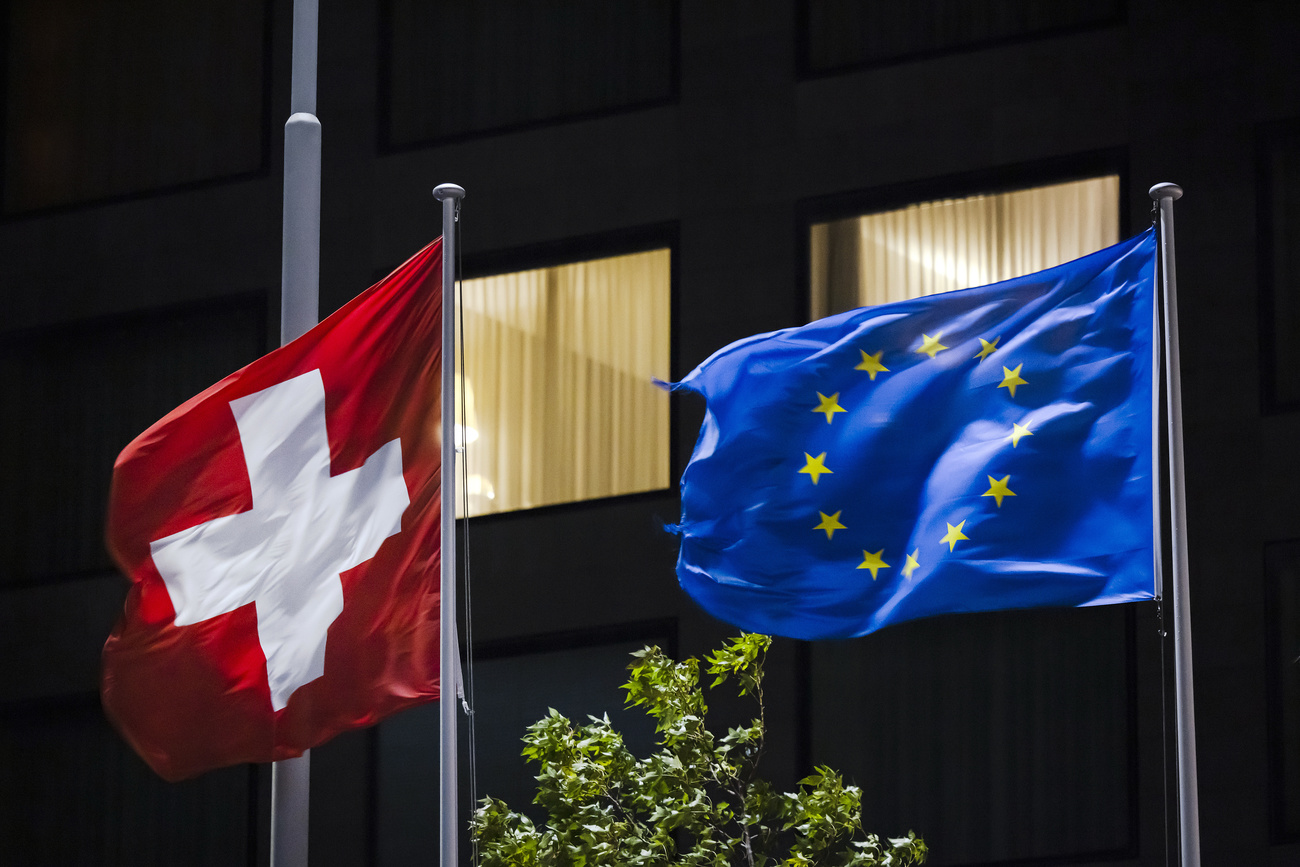
Swiss voters support bilateral agreements with EU and are willing to compromise

The Swiss electorate remains convinced by the bilateral agreements with the European Union. A majority is prepared to compromise in the current negotiations, according to a survey published on Tuesday on behalf of the pharmaceutical association Interpharma.
+Get the most important news from Switzerland in your inbox
The survey was conducted by the opinion research institute gfs.bern for the 11th time. According to the results, 65% of the 2,000 voters surveyed in July saw mainly advantages in the bilateral agreements.
Advantages and disadvantages were identified by 14%, a decrease of nine percentage points compared to the previous year. As in the previous year, a majority were in favour of negotiations with the EU; 86% highlighted the advantages for the economy, 83% for research, 70% for working life and 69% for studying in Europe.
+ Switzerland renegotiates with the EU after almost three years
Voters recognised the need for bilateral agreements for prosperity and innovation in Switzerland, wrote Interpharma, the association of the research-based pharmaceutical industry. It said 84% cited access to the export market, 82% to education and research programmes and 79% to skilled workers.
Almost four out of five respondents thought the resumption of negotiations with the EU was the right thing to do. It was clear to respondents that this would require concessions; 85% were prepared to compromise on wage protection in order to conclude negotiations, 30 percentage points more than in the previous year.
In addition, 47% were willing to compromise on the adoption of the Citizens’ Rights Directive, an increase of 16 percentage points. For the first time, the current survey showed a majority of 55% in favour of continuing the bilateral agreements, even if this involves the adoption of EU law.
The opinion research institute gfs.bern conducted the survey, which is considered representative, from July 1 to 29 among voters throughout the country; 804 interviews were conducted in computer-assisted telephone interviews and 1,196 online.
Translated from German by DeepL/ts
This news story has been written and carefully fact-checked by an external editorial team. At SWI swissinfo.ch we select the most relevant news for an international audience and use automatic translation tools such as DeepL to translate it into English. Providing you with automatically translated news gives us the time to write more in-depth articles.
If you want to know more about how we work, have a look here, if you want to learn more about how we use technology, click here, and if you have feedback on this news story please write to english@swissinfo.ch.

In compliance with the JTI standards
More: SWI swissinfo.ch certified by the Journalism Trust Initiative

























You can find an overview of ongoing debates with our journalists here . Please join us!
If you want to start a conversation about a topic raised in this article or want to report factual errors, email us at english@swissinfo.ch.